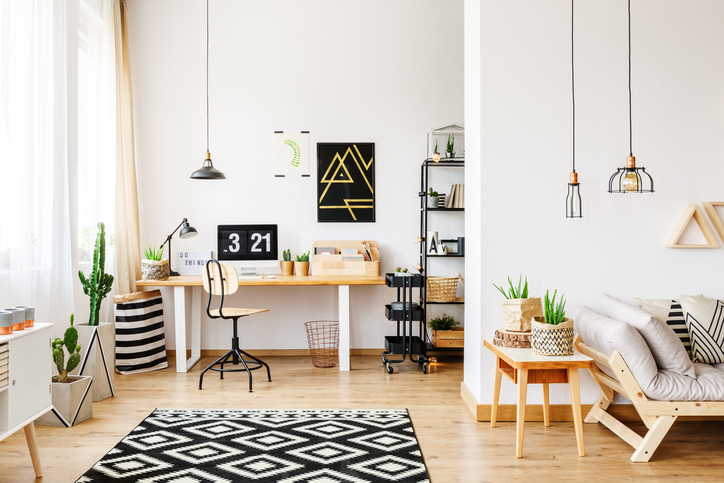Monday, October 08, 2018
By John Voket More and more folks today are taking full advantage the flexibility and opportunities to be had thanks to the "gig economy."
More and more folks today are taking full advantage the flexibility and opportunities to be had thanks to the "gig economy."For those of you who work from home, surround yourself with a workspace that will optimize not only your productivity, but also your health. When assessing one's home workspace, one of the most important points is your seat, whether it's an elevated stool at a workstation or the classic office chair.
According to an in-depth report at zapier.com, after your desk, your chair is the most important piece of furniture in your office, especially if you sit in it for long work sessions.
Here's what zapier.com suggests you look for in an ergonomic office chair:
Lumbar support: The curved chair back should support your lower spine, following the natural curve of your lower back.
Seat depth: The right seat will allow you to sit comfortably with your lower back against the lumbar support while also leaving an inch or two between the back of your knees and the seat. While seated, be sure you have three- or four-fingers' width distance between your legs and the edge of the seat.
Chair height: Adjust the height so your feet are flat on the floor or a foot rest.
Arm rests: Armrests should be adjusted so your shoulders aren't hunched and your arms are parallel to the floor.
Recline-ability: Researchers found that reclining in your chair at about 135 degrees may be better for your spine than sitting straight up.
Material: Some may want a mesh chair for the 'breathability' factor, but avoid cheap chairs because their foam seats often wear out quickly.
Basically, the site says you should consider investing in a chair that allows you to make adjustments for lumbar support, firmness, position and seat depth.
And what about adjustable-height desks?
Zapier.com says scientists have connected sitting all day with everything from increased blood pressure to spine damage to heightened risk of dying. But since standing all day has health concerns as well, alternating between the two is recommended.
RISMedia welcomes your questions and comments. Send your e-mail to: realestatemagazinefeedback@rismedia.com


